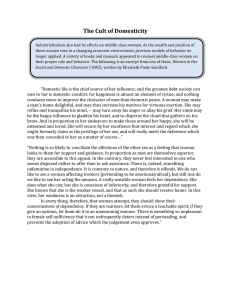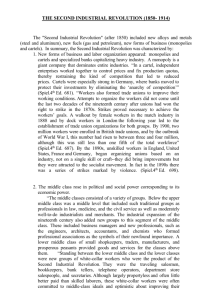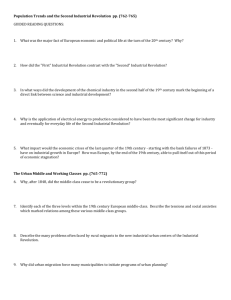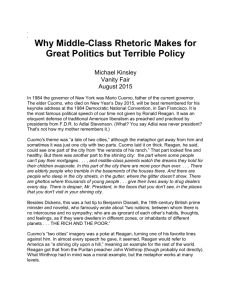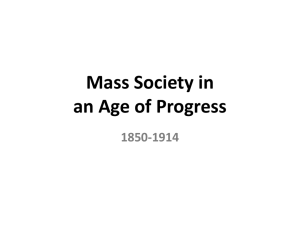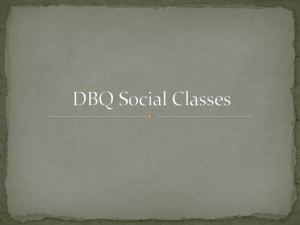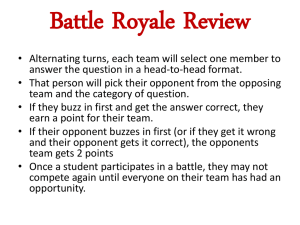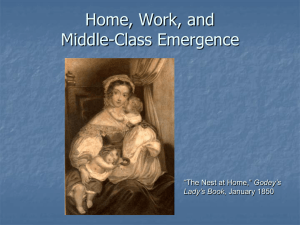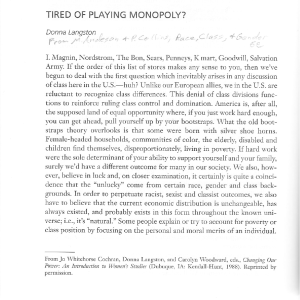social_class_ed2
advertisement
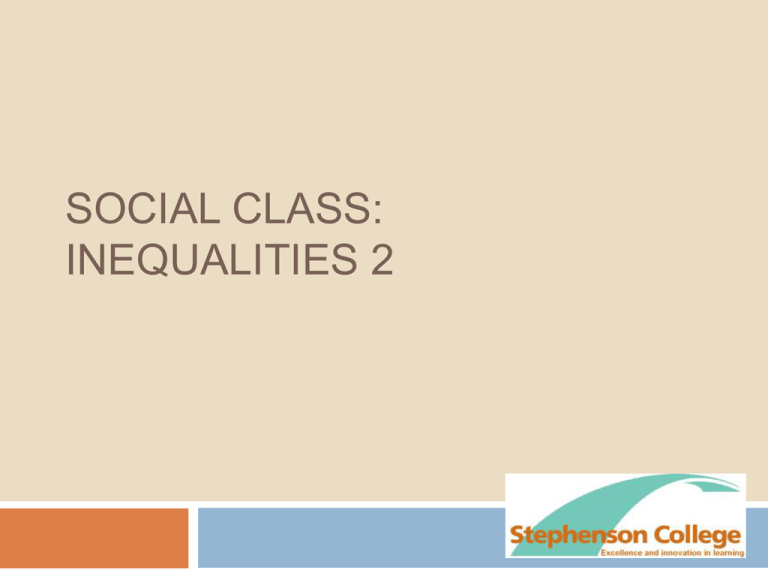
SOCIAL CLASS: INEQUALITIES 2 Why do working class children fail? Is it because: Genetically, working class children are not as clever as children from higher classes (Heredity) The system & structure of education does not support the working class as well as middle class? Parents don’t support them mentally or financially, and don’t value education? Education is a middle-class institution Teachers are Middle class/syllabus is designed by Middle class etc.)? Heredity View that ability is related to genetics – passed on by parents (e.g. inherited traits) Educational psychologists such as Cyril Burt believed that by testing children you would see their ability = 11+ exams & ‘streaming’ through Tripartite system Problems with this idea Mostly middle-class/white dominated tests = discriminates against other classes/ethnic groups Not consider external influences on I.Q (parents/health etc.) Surveys (1950’s) showed w.class children underachieving – was the education system failing? System of Education ‘There is a strong direct association between social class background and success in education: put simply, the higher a child’s social class, the greater are their attainments on average. According to DfEE figures, in 1997 children from the most advantaged backgrounds .. were more than three times as likely to attain five or more higher grade GCSEs than their peers at the other end of the class spectrum … This is one of the longestestablished trends in British education … there is evidence that the inequality of attainment between social classes has grown since the late 1980s. (www.Ofsted.gov.uk) http://www.thetruthaboutourschools.com/2011/06/18/beware-ofattempts-to-undermine-feinsteins-graph/ http://www.guardian.co.uk/education/2010/apr/13/educationinequality-election-figures-misled System of Education-Has Reform helped? Ball et al (1991-94)Found that mostly Middle class children where benefiting from the ‘parental choice’ opportunities because: Schools were trying to get the brightest pupils M.class parents are more likely to work the system to get children into better schools because: Own transport or can afford transport for child Can afford to move into catchment areas Can afford extra teaching Know how to get round middle class head teachers. Reasons for Inequality:Upbringing Parents (Douglas:1964) Attitudes influence school performance Middle-class visit schools more often Housing/Health influences Educational Achievement CRIT: Maybe W/class parents can’t visit schools (e.g.work commitments) or feel uneasy in school environment Different value systems (Hyman) W/class don’t value Education so much Not about improving social standing but maintaining it for W.Class Work/trade is more important boys CRIT: (Boudon) Not about values or ambition but structure of society –working class start at a disadvantage to middle class kids (backed up by Willis’ study of working class) SS2000_04education.pdf (Sociology Since 2000) Reasons for Inequality: Upbringing Home environment Coats & Silburn – St Annes, Nottingham Poor housing, low self esteem More illness, more absence Poor vocabulary etc. when starting school=slow start Halsey Found higher income = better support for education at home Believed that staying on at school (6th form/FE) is down to financial circumstances & not ability However, noted that grants for sixth-form students may support working-class ability Education is a middle-class institution? Teachers are generally middle-class Values – they generally impose these in the classroom. Behaviour is judged on middle-class standards. The curriculum is designed by the middle-class. Secretary of State for Education decides the curriculum/subjects to be studied. Text books are written by teachers etc. and generally use middle-class examples. Influence of Teachers Language – teachers reaction to speech Bernstein (1950’s) was a teacher in east London & noticed the importance of ‘speech codes’ Restricted (short, no detail) – w.class- children respond quickly without question Elaborated (long, detailed explanation) m.class- children take part in conversation through questions etc. W.class disadvantaged because teachers speak in elaborate code Behaviour – more ability = better behaviour? Hargreaves (1975) ‘Deviance in Classrooms’ Teachers give children labels according to characteristics, where they live & how they dress Whether the label sticks depends on how often they are labelled, whether they value the opinion of the teacher, if others support the label & where the labelling takes place Influence of Teachers Labelling & the ‘Self-fulfilling prophecy’ What ever label you are given (e.g. bright, naughty, stupid) by your teacher may influence the person you become (if you accept the label) Tested by Rosenthal & Jacobsen (1968) They persuaded teachers that a random group were really smart to see if would have an effect on: It How they were treated & consequently.. How well they did at school worked – the children’s IQ got higher (more esteem from teachers =work harder) Present underachievement Edinburgh University Study (2006): Key findings Inequalities in attainment at age 16 were similar in England and Scotland. Inequalities in attainment at age 18 improved slightly between the 1980s and the 1990s in England but not in Scotland. Within each Scottish cohort the class gap was wider at 18 than at 16 years. By the late 1990s inequalities at age 18 were substantially wider in Scotland than in England. In both countries social-class differences in entry to HE could largely be attributed to class differences in achieving the qualifications for entry to HE. Inequalities in entry to degree courses were wider than for HE as a whole. Sources & Suggested Reading Brown. K, (1992) An Introduction to Sociology Cambridge. Polity Press Haralambos & Holborn, (2000) Sociology; Themes and Perspectives. Fifth Edition London. HarperCollins Publishers. Taylor, D (1988) Mastering Social & Economic History Hamshire. Macmillan Education Ltd Taylor, Richardson, Yeo, Marsh, Trobe & Pilkington, (1993) Sociology in Focus Ormskirk. Causeway Press Ltd www.inthenews.co.uk Next Weeks Lesson Functionalism and Marx
